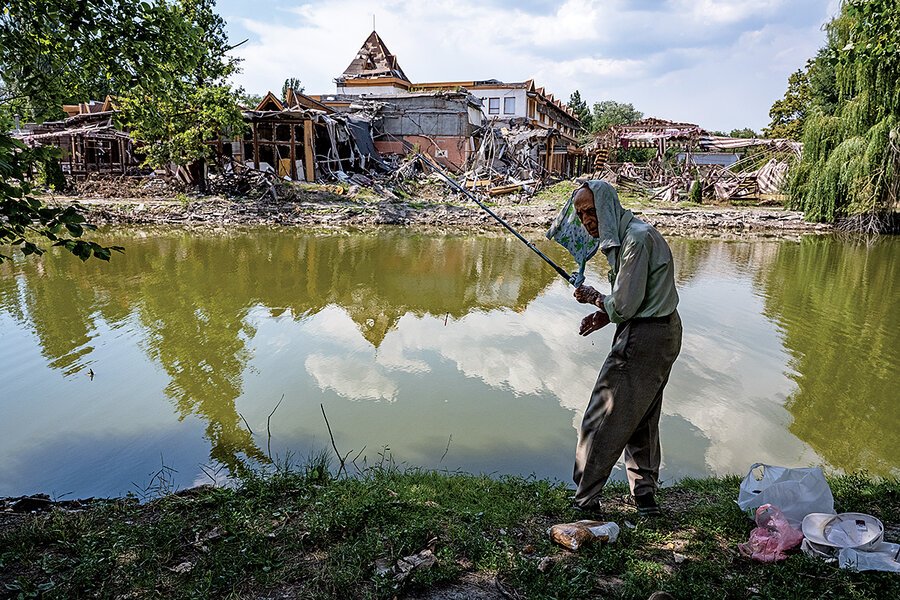A ‘priceless’ weapon in Ukraine’s arsenal
Loading...
There are countless stories of Ukrainians helping each other during wartime. As a Monitor correspondent who has made seven trips to Ukraine during the present conflict, I have come across one example after another of people pitching in to assist their fellow citizens. Taken together, these acts of collective care and generosity have amounted to a nationwide recalibration, for the better, of Ukrainians’ sense of patriotic unity and selflessness.
In a debris-filled Orthodox cathedral hit by a Russian missile in Odesa, for example, I found some Ukrainians who are not religious – and did not know anyone associated with the church – who stepped in off the street to take a broom in their hands and join volunteers to clean up the mess.
Likewise, the owner of a grain storage facility struck by five Russian missiles in the Odesa region told me how surprised she was that more than 50 people from surrounding villages showed up, before dawn and despite the continued danger, to put fires out and help in any way they could.
“No one asked them to come – they just came,” Olha Romanova told me, still impressed.
And in the far east of the country, in the Donetsk region, I caught up with an artillery commander as he waited for the repair of his unit’s howitzer. I first met Oleksandr, who goes by the call sign Kirik, on a frigid front line last February, when he was using a captured Russian 152 mm cannon to target Russian forces.
Now it was the height of summer, and in this rear position, Kirik and his squad were billeted in a house that had been offered by an older, local woman who owned two houses – and who wanted to help.
Kirik was not surprised, after having been with artillery units engaged in fighting in this area since Russian forces and their proxies seized control of Donetsk city and much of the Donbas in 2014.
“The last nine years I have been here, I have got to know a lot of local people,” says Kirik. “We help them; we help each other. Sometimes if a shop is closed and you need something ... or if your car is stuck, locals can help.”
Halfway through our conversation – seated at a small table with mosquito coils and a watermelon, beneath a canopy of vines thick with clusters of green grapes and strung with drying laundry – the owner stopped by to drop off a plate of warm, homemade rolled pancakes filled with jam.
“This is an example of the support of locals,” says Kirik, with a knowing smile. He says Russian troops can’t count on such support in Ukraine, and he has heard of cases of tainted food being given to occupying Russians.
Helping each other helps win the war, says Kirik: “The help of the civilian population here is priceless.”






